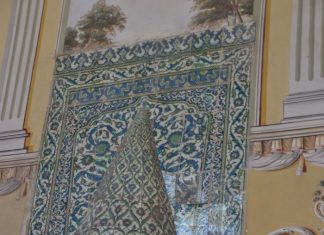After a decade as emperor, with doctrinal disputes put to rest, Theodosius felt he was in a position to crack down. In 391, he issued the formal imperial edict banning traditional sacrifice and religious ritual. The mandate was enforced by imperial troops, by social fear, and, here and there, by the partially approved thuggery of Christian zealots. Theodosius died in 395, and it was only in 399 that real temple busting came to Roman Africa, for example; and when it did come, it was quick and decisive. Not since Caracalla, who conferred full Roman citizenship on all free inhabitants of the empire in the early third century, had a single emperor done so much to affect so many lives, irreversibly. Ramsay MacMullen has noted the supreme confidence of the Christians at that time, leading to a nearly complete cessation of serious efforts to proselytize for their religion.26 Henceforth, Christianity was a matter of requirement, and persuasion was irrelevant. Pope Gregory’s mission to convert the English in the 590s was a surprising innovation, but it reached beyond the lands where imperial requirements could go.
Theodosius I suffered from a common weakness of monarchs: love of his children. When he died in 395, he left two sons, Arcadius in Constantinople and Honorius in Ravenna, to inherit his throne. Neither was of age, neither was up to the job, but no one was ready to let them fail. Honorius was in the hands of Theodosius’s general Stilicho, and for as long as Stilicho flourished, Honorius’s regime performed respectably, but it foundered in the wake of Stilicho’s murder until, as we have seen, Aetius brought his steady hand to the high command. In Constantinople, what emerged was not a general, but a court, a corporate regime that managed civil and military affairs, with no single power behind the throne and no emperor more than an imperial front for this court, at least until Zeno and Anastasius nearly 100 years later.
What Theodosius left behind, more important than his sons, was a religious landscape denuded of the familiar and the emergence, by encouragement and by default, of an empire-wide leadership class of Christian bishops and their wealthy supporters and associates. This was an empire with traditional religion forbidden and Christianity allowed to run amok, but it was not a Christian empire bulgaria destinations.
Christianity flourished
Christianity flourished, was privileged, and did its business. Emperors and many if not most courtiers and senior officers attended Christian services. When (rarely) it snowed in Constantinople, as it did one day in the reign of Theodosius II, the emperor would lead the crowd in the circus in Christian hymns in hope of better weather.27 The military officers recruited from the margins of empire, the ones often thought of as barbarian, were themselves predominantly Christian, of their old-fashioned Arian kind to be sure, but their advance into positions of leadership in the western empire had its own effect, over time, in favor of Christianization. They took Christianity for granted and had no interest in or sympathy for traditional Mediterranean religions.
In cities all over the empire, bishops and wealthy Christians took decisive control. They acted as though persecution could return at any moment and concentrated on controlling what they could control around themselves. If you were not a Christian, or if your views of Christianity were not those of the ruling elite in your neighborhood or in the great cities, you might encounter various nuisances, but for the most part you could go about your business as before—just so long as you did not insist on engaging in sacrifices or other forbidden rituals Son of Constantius.
Remarkably little testimony survives from the first generation of those accustomed to the old rites about how they coped with the ban they now faced. Many of them found their way quite directly into Christian churches, and not always skeptically. They reasoned that the Christian god must be mighty indeed if he could suppress the worship of all others, and this was a strong reason to spend time in his churches, if only as a way of making sure that this new and powerful deity would look kindly on those who paid proper attention to him. Others appeared in church simply out of prudence, and some were heard to murmur skeptical thoughts, especially at moments when the world’s misfortunes let them suggest that the new god was not so powerful as his promoters had promised.








